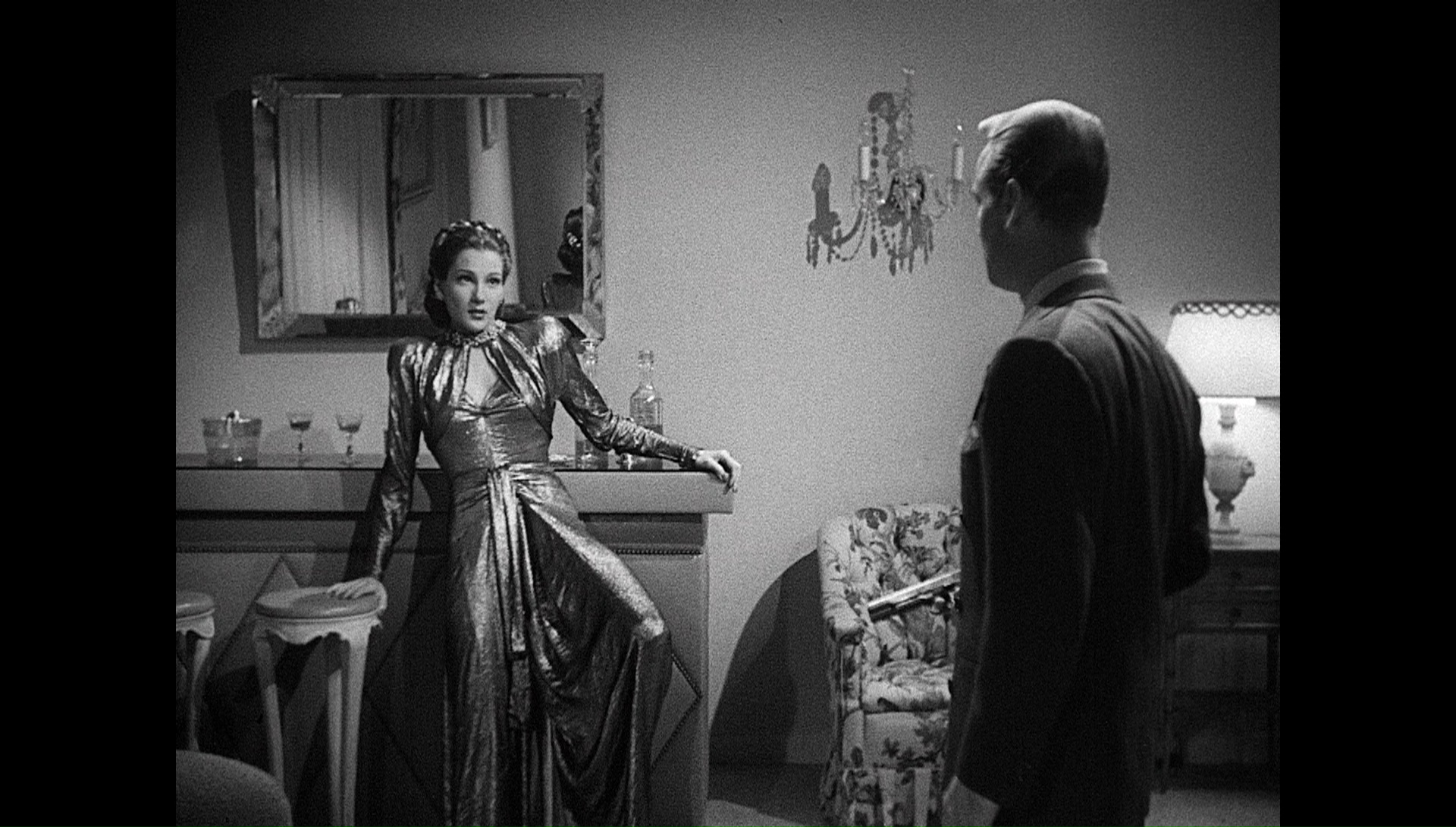
B&W, 1946, 96m.
Directed by George Marshall
Starring Alan Ladd, Veronica Lake, William Bendix, Howard Da Silva, Doris Dowling, Hugh Beaumont
Arrow (Blu-ray) (UK RB HD), TCM (DVD) (US R1 NTSC), Universal (DVD) (UK R2 PAL), Koch (DVD) (Germany R2 PAL)

 Far more famous for its place in Hollywood lore than as an actual film, this entertaining postwar noir was cobbled together quickly when star Alan Ladd was enlisted for military service with only a short period of time to shoot his scenes. At the height of his tenure as a screenwriter, legendary hardboiled novelist Raymond Chandler demanded unheard of accommodations (some possibly apocryphal, such as being allowed to work drunk from home) to quickly crank out his first original solo screenplay, and the released film went on to inspire the nickname of one of Los Angeles’s most famous crime victims, Elizabeth “The Black Dahlia” Short.
Far more famous for its place in Hollywood lore than as an actual film, this entertaining postwar noir was cobbled together quickly when star Alan Ladd was enlisted for military service with only a short period of time to shoot his scenes. At the height of his tenure as a screenwriter, legendary hardboiled novelist Raymond Chandler demanded unheard of accommodations (some possibly apocryphal, such as being allowed to work drunk from home) to quickly crank out his first original solo screenplay, and the released film went on to inspire the nickname of one of Los Angeles’s most famous crime victims, Elizabeth “The Black Dahlia” Short. 
 as always, and fellow Glass Key alum Bendix matches them with the most volatile and fascinating character in the film, one who fits the uneasy post-World War II mindset a bit too well for comfort. Workmanlike director George Marshall never really settled into one genre or style, so he has the good sense here to just sit back and shoot the actors with just enough shadows and neon to give it that unmistakable noir stamp.
as always, and fellow Glass Key alum Bendix matches them with the most volatile and fascinating character in the film, one who fits the uneasy post-World War II mindset a bit too well for comfort. Workmanlike director George Marshall never really settled into one genre or style, so he has the good sense here to just sit back and shoot the actors with just enough shadows and neon to give it that unmistakable noir stamp.  English subtitles provided (the first time for this film as well, apparently).
English subtitles provided (the first time for this film as well, apparently).  despite lacking some of the key elements (no flashbacks, voice over, etc.), the strong role of producer John Houseman, and its representation of Chandler's tough writing style. Also included is a Screen Guild Theater dramatization of the story from 1949 ("brought to you by Camel cigarettes - not one single case of throat irritation!"), with Lake and Ladd reprising their roles for a compact half-hour version that hits all the high points. The theatrical trailer and a gallery of stills and poster art rounds out the package, which comes with reversible packaging featuring the original poster art and a new design by Tonci Zonjic; the first pressing also comes with a liner notes booklet featuring an essay by Film London’s Adrian Wootton.
despite lacking some of the key elements (no flashbacks, voice over, etc.), the strong role of producer John Houseman, and its representation of Chandler's tough writing style. Also included is a Screen Guild Theater dramatization of the story from 1949 ("brought to you by Camel cigarettes - not one single case of throat irritation!"), with Lake and Ladd reprising their roles for a compact half-hour version that hits all the high points. The theatrical trailer and a gallery of stills and poster art rounds out the package, which comes with reversible packaging featuring the original poster art and a new design by Tonci Zonjic; the first pressing also comes with a liner notes booklet featuring an essay by Film London’s Adrian Wootton.